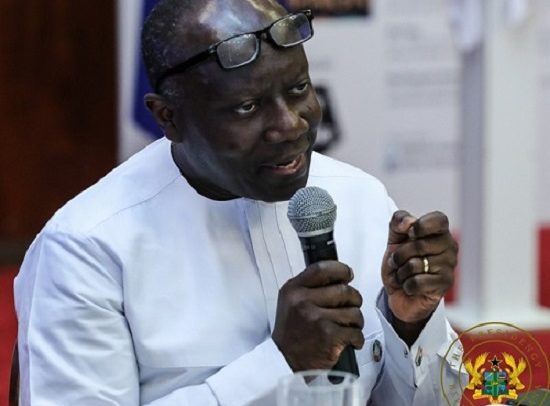Surveys conducted by the Ghana Statistical Service (GSS) evidently show that the impact of the COVID-19 pandemic has exacerbated inequalities in employment and income and as a result, the poor are being burdened.
Thus, the newly introduced taxes by the government should be revised in favour of more progressive tax policy measures as they are highly regressive.
The government may consider the rationalization of tax expenditures such as widespread exemptions and windfall taxes so as to steer the country through its recovery path.
Navigating through a crisis that spared no one, especially the vulnerable and poor does not require an additional burden on these categories of people.
Thus, the government’s mid-year budget presentation that will be read in the next couple of days should capture these in order to ensure a more sustainable path to recovery.
The World Bank, UNCTAD and other Development Institutions indicate that the hardest-hit are the poor and vulnerable while the wealth portfolio of most of the rich/elite are unscathed and have even grown in leaps and bounds than during pre-pandemic times.
As a rule of thumb, for every fiscal consolidation path, the timing of the tax is as equally important as the composition of the tax. It is prudent and standard practice that while considering these existing economic conditions are taken into account.
Essentially and where possible, fiscal consolidation should not be rushed, especially in situations where there is indication of economic weakness, but if so desperately required, consideration should be given to measures that are less likely to suppress demand.
Albeit, the government’s newly introduced taxes do not take into consideration these clear evidences, as they are regressive in nature.
In the wake of the fiscal consolidation path outlined by the government during its 2021 budget in March, a host of tax policy measures were introduced as ‘reflex’ responses to get the economy on a path to recovery, yet within the short term, these taxes have rather worsened the plight of the poor.
These taxes include a 1% COVID-19 Health Recovery Levy as well as the imposition of an Energy Sector Levy of 20 pesewas per litre of petrol/diesel and 18 pesewas per kg on Liquefied Petroleum Gas (LPG) and the imposition of a Sanitation and Pollution Levy of 10 pesewas per litre of petrol and diesel respectively.
Tax Policy Measures for consideration
Therefore, the government should rationalize its tax expenditures such as the widespread tax exemptions.
Government’s policy choices in giving tax exemptions to certain sectors or goods and services undesiring of them have led to the paltry revenue collected every year.
Specifically, revenue cost of VAT exemptions and reduced rates in Ghana is 1.0 per cent of GDP. Meanwhile, Ghana’s revenue collection as a share of GDP is less than 15 per cent, one of the lowest in SSA.
Moreover, increment in taxes should target sectors that are considered as having fared well during the pandemic as that will have a smaller negative effect on demand rather than taxes on expenditure which are currently at play. These among others should be looked into.
In addition to the need for the government to reduce discretionary spending that can be avoided and would not add to the economy’s recovery in anyway, like the provision of car loans to MPs which has been approved by parliament compared with the disapproval of payment of fees for tertiary students who could not afford fee payments due to the pandemic’s economic effects.
Nonetheless, pursuing a tax policy that is burdensome to the poor in the context of the COVID-19 crisis should be replaced with a more progressive tax policy. Also, Government’s credibility concerning the use of tax revenues should be checked as this may undermine the possibility of preventing tax evasion and avoidance.




Comments are closed.